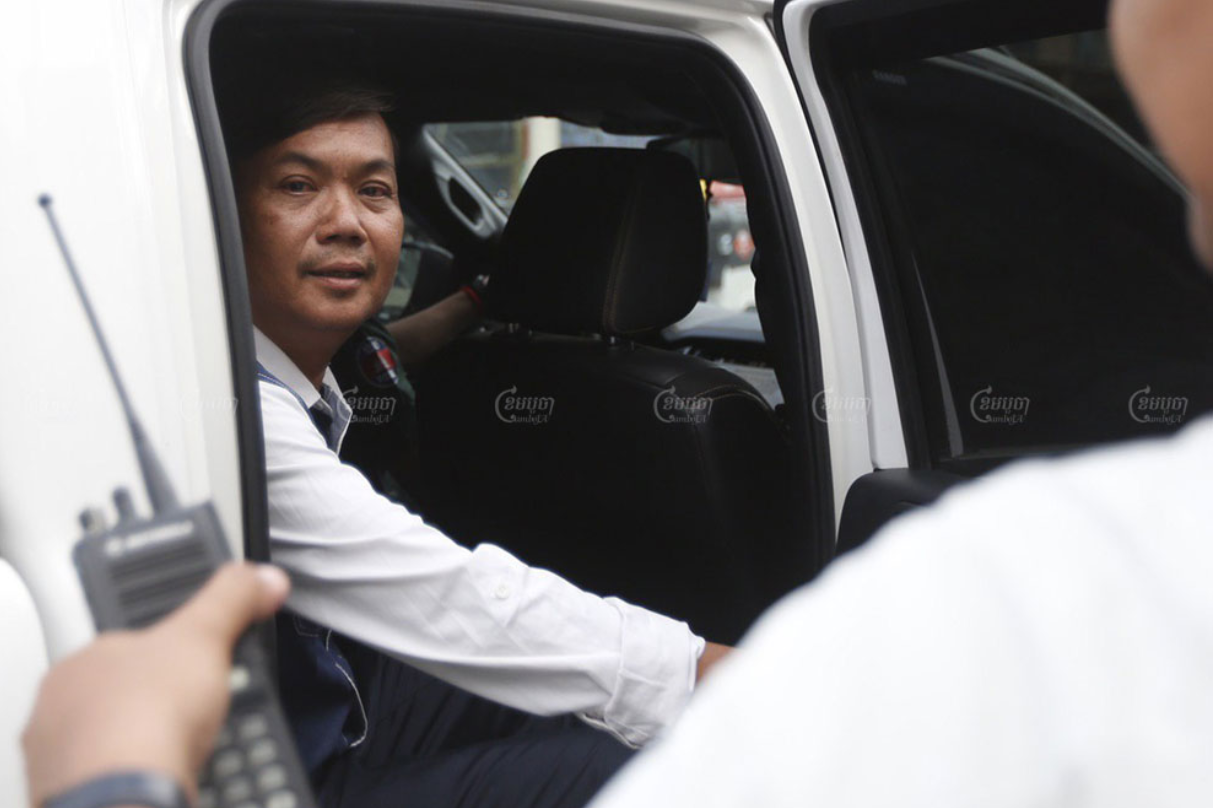Cambodia’s ‘incitement’ law is inconsistent with international human rights standards, the UN Working Group on Arbitrary Detention has found.
In a case brought on behalf of Cambodian journalist Ros Sokhet by the Clooney Foundation for Justice (CFJ) and Debevoise & Plimpton LLP, the Working Group found that Mr. Sokhet’s detention had been arbitrary under international law and that Cambodia should provide compensation and reparations.
“The UN Working Group’s opinion makes clear that Mr. Sokhet’s case is just the tip of the iceberg. It’s past time for Cambodia to stop using this law to imprison journalists and critics,” said Stephen Townley, Legal Director of CFJ’s TrialWatch Initiative, which has previously called for reform of the ‘incitement’ law. CFJ’s partner the American Bar Association Center for Human Rights monitored Mr. Sokhet’s trial as part of TrialWatch.
Debevoise partner Catherine Amirfar, who was recently appointed Deputy Co-Chair of the High Level Panel of Legal Experts on Media Freedom, said: “The Working Group’s opinion stands as a victory for press freedoms around the world, and helps promote the rule of law in Cambodia. We hope that Cambodia will heed the Working Group’s call to strike its incitement law, in line with human rights standards. This is much-needed good news in a world that is increasingly dangerous for independent journalists.”
In June 2020, Mr. Sokhet was arrested by the Cambodian police and charged with ‘incitement to disrupt social order’ based on Facebook posts on behalf of his news outlet that were critical of Cambodian Prime Minister Hun Sen, among other government officials. After a deeply flawed and cursory trial, Mr. Sokhet was sentenced to 18 months’ imprisonment in Cambodia’s notorious Prey Sar Prison.
In June 2021, Debevoise and CFJ filed a complaint on Mr. Sokhet’s behalf, arguing that his detention was arbitrary under international human rights law and requesting his immediate release. In November, the Working Group agreed that his arrest “resulted from the peaceful exercise of his fundamental rights under international law,” and called on Cambodia to immediately release Mr. Sokhet and provide him reparations. He was released after serving his sentence shortly thereafter. The Working Group’s opinion was published last week.
The Working Group found that “that Mr Sokhet’s right to a fair trial and due process was violated” because the court’s behavior violated his right to the presumption of innocence.
Importantly, the Working Group also concluded that the law under which Mr. Sokhet was charged was incompatible with human rights standards because the incitement law is “vague and overly broad.” The Working Group also found “credible” “allegations that Cambodia has launched a campaign of persecution against other journalists like Mr. Sokhet.”
Debevoise’s partnership with CFJ is part of CFJ’s TrialWatch® initiative, which monitors criminal trials globally against those who are most vulnerable — journalists, protesters, women, LGBTQ+ persons and minorities — and advocates for the rights of the unfairly detained.
The Debevoise team representing Mr. Sokhet with CFJ is led by Catherine Amirfar and counsel Floriane Lavaud, and includes associates Ramsay McCulloch, Isabelle Glimcher and Michael Pizzi.
